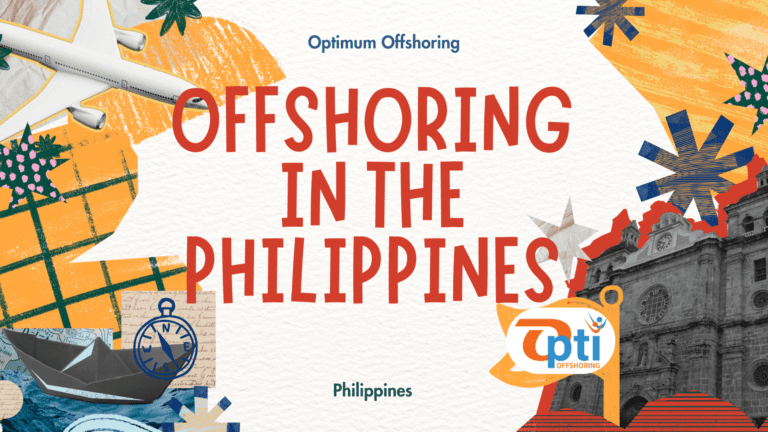Offshoring in the Philippines: A Thriving Hub for Global Business
The Philippines has emerged as one of the leading destinations for offshoring, attracting companies from around the world seeking cost-effective and high-quality business solutions. With a unique blend of a skilled workforce, cultural compatibility, and strategic location, the country has solidified its reputation as a global outsourcing powerhouse. This article explores the key factors driving the success of offshoring in the Philippines and why it remains a top choice for businesses worldwide.
A Skilled and Diverse Workforce
One of the most compelling reasons businesses choose the Philippines for offshoring is its highly skilled workforce. The country boasts a literacy rate of over 96% and a strong emphasis on education, particularly in fields like business, technology, and healthcare. Additionally, Filipinos are known for their proficiency in English, making them an ideal choice for roles requiring excellent communication skills, such as customer support and back-office operations.
Moreover, the Philippine workforce is adaptable and diverse, capable of handling various industries, including IT, finance, healthcare, and creative services. This versatility allows companies to tap into a wide range of expertise to meet their unique needs.
Cultural Compatibility and Customer-Centric Approach
Cultural compatibility is another significant factor contributing to the Philippines’ success in offshoring. Filipinos are known for their hospitality, friendliness, and service-oriented mindset, which align well with the needs of global businesses. This cultural affinity ensures a seamless interaction between offshore teams in the Philippines and their international clients.
Additionally, the country’s focus on customer satisfaction is evident in its thriving business process outsourcing (BPO) industry. Offshore teams in the Philippines consistently deliver high-quality service, often going above and beyond to meet client expectations.
Cost-Effectiveness
The cost advantage of offshoring to the Philippines cannot be overstated. Companies can save significantly on labor costs without compromising quality. The lower cost of living in the country allows businesses to access skilled talent at competitive rates, making it an attractive option for small, medium, and large enterprises alike.
Beyond labor, operational expenses such as office space and utilities are also more affordable, further enhancing the cost efficiency of outsourcing to the Philippines.
Infrastructure and Technology
The Philippines has made significant strides in improving its infrastructure to support the growing offshoring industry. Modern office spaces, reliable internet connectivity, and advanced telecommunications networks ensure that offshore teams can operate efficiently and without interruptions.
The government has also invested in IT parks and economic zones to attract foreign investors and provide state-of-the-art facilities for outsourcing companies. These efforts have helped position the Philippines as a global leader in the offshoring sector.
Government Support and Incentives
The Philippine government plays a crucial role in fostering a conducive environment for offshoring. Through agencies like the Philippine Economic Zone Authority (PEZA), the government offers tax incentives, simplified business registration processes, and other benefits to encourage foreign investment in the outsourcing industry.
Additionally, initiatives focused on upskilling the workforce and promoting digital transformation have ensured that the country remains competitive in the global market.
The Future of Offshoring in the Philippines
As technology continues to evolve, the Philippines is poised to adapt and thrive in the changing landscape of global business. The integration of advanced tools like artificial intelligence, automation, and data analytics is enhancing the capabilities of offshore teams, enabling them to deliver even greater value to their clients.
The country’s commitment to innovation, coupled with its strong workforce and supportive infrastructure, ensures that the Philippines will remain a preferred offshoring destination for years to come.
Conclusion
Offshoring in the Philippines has become a cornerstone of global business strategies, offering a winning combination of skilled talent, cultural compatibility, cost efficiency, and government support. For companies looking to optimize their operations and drive growth, the Philippines stands out as a trusted and reliable partner in the ever-evolving world of outsourcing.



